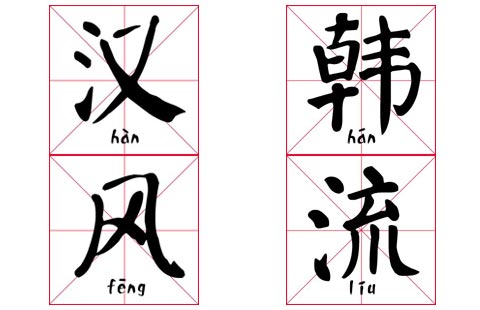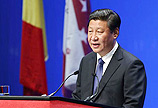Beijing, Seoul vow to reach FTA soon
Updated: 2013-10-08 08:28
By WU JIAO in Bali, Indonesia and ZHOU WA in Beijing (China Daily)
Comments Print Mail Large Medium SmallBeijing and Seoul on Monday pledged to push forward free trade negotiations to upgrade cooperation, as President Xi Jinping met with Republic of Korea President Park Geun-hye on the sidelines of the APEC summit.
"Establishing a free trade area between China and the ROK is the most important issue in current Beijing-Seoul economic ties," Xi said.
"China hopes that both countries can actively advance the negotiation process and reach a high-level Free Trade Agreement that guarantees the general balance of mutual interest as soon as possible."
Currently, China is ROK's largest trading partner, largest market for exports and largest source of imports and investment, while the ROK is China's third-largest trading partner.
Bilateral trade volume surpassed $250 billion in 2012, compared with only about $6 billion in 1992, when China and the ROK established diplomatic ties.
According to statistics from the Foreign Ministry, trade between the two countries increased 8.4 percent in the first half of 2013, while Chinese investment in the ROK grew 11.3 percent.
The ROK enjoyed a trade surplus for a long time. The FTA would further boost the economic development of both countries, although there are still difficulties to reach the agreement, said Wang Junsheng, a researcher on Korean studies with the Chinese Academy of Social Sciences.
"The ROK's main concern is that the FTA will have an impact on its domestic agriculture industry, while Beijing's worry focuses on the manufacturing industry," Wang said.
The price of ROK agricultural products is very high at present. Cheap Chinese agricultural products may arouse sharp competition against domestic ones when they enter the ROK market under a free trade agreement.
A similar impact may also happen to China's manufacturing industry, especially in electronic components.
Huang Youfu, a professor of Korean studies at Minzu University of China, suggested the two countries set a time limit for the tariff reductions and exemptions to ease the impact on specific industries brought by the FTA.
"To reach a FTA, China and the ROK should not focus on one single industry too much, but keep their eye on the general economic interest," he added.
Free trade negotiations between China and the ROK began on May 2, 2012. The talks are supposed to be completed in two stages.
If reached, the FTA will significantly improve bilateral trade volume.
Xi spoke highly of the China visit made by Park in June, when the two countries reached extensive consensus on enriching and deepening their strategic cooperative partnership and set the tone for the future bilateral ties.
He also called on the two countries to promote peace and stability in the region and to launch a joint committee mechanism on people-to-people exchanges at an early date to enhance non-governmental friendships.
Park told Xi that her country is happy to see the significant consensus reached by Xi and herself being carried out actively and both official and non-governmental exchanges becoming more active.
The ROK would like to maintain high-level exchanges with China, improve cooperation in various fields, complete the free trade talks as soon as possible and energetically boost people-to-people exchanges, Park said.
The two sides should maintain close coordination in international and regional affairs, Park added.
Affirming the improvement of Seoul-Pyongyang relations in the past four months, Xi reiterated China's firm support on the improvement of their ties and its insistence on the denuclearization of the Korean Peninsula.
China will persist in maintaining peace and stability on the Peninsula and resolve Pyongyang's nuclear issue through political dialogue, Xi said.




